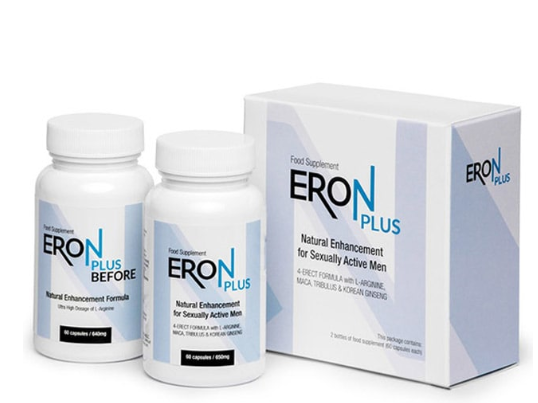Introduction to Sperm Motility
When it comes to fertility, the motility of sperm plays a crucial role. Sperm motility refers to the capacity of sperm to move successfully through the female reproductive tract to fertilize an egg. Low sperm motility can significantly reduce the chances of conception. In this article, we’ll explore ten surprising and natural ways to enhance sperm motility for better reproductive health.
Table of Contents
Healthy Lifestyle Changes

Diet Modifications: Consuming a balanced diet rich in antioxidants, vitamins, and minerals can improve sperm quality and motility. Incorporate foods like fruits, vegetables, nuts, and whole grains while reducing the intake of processed foods and added sugars.
Regular Exercise: Engaging in regular physical activity not only helps in maintaining a healthy weight but also improves overall sperm health. Go for at least 30 minutes of moderate exercise most days of the week.
Stress Management: Chronic stress can negatively impact sperm production and motility. Practice stress-reducing techniques such as meditation, yoga, or deep breathing exercises to promote relaxation and enhance fertility.
Supplements and Nutrients
Zinc: Zinc is essential for sperm production and motility. Incorporate zinc-rich foods like oysters, beef, pumpkin seeds, and spinach into your diet. Alternatively, consider taking a zinc supplement under medical supervision.
Coenzyme Q10: Coenzyme Q10, a powerful antioxidant, has been shown to improve sperm motility and overall sperm quality. It can be obtained through supplementation or by consuming foods like fish, organ meats, and whole grains.
Vitamin D: Low levels of vitamin D have been associated with poor sperm motility. Ensure adequate sun exposure or consider taking a vitamin D supplement to optimize levels and support reproductive health.
Avoiding Harmful Substances
Tobacco: Smoking tobacco has detrimental effects on sperm motility and overall fertility. Quitting smoking can lead to significant improvements in sperm quality and increase the chances of conception.
Alcohol: Excessive alcohol consumption can impair sperm production and motility. Limit alcohol intake or abstain from alcohol altogether to enhance fertility.
Caffeine: High caffeine intake has been linked to reduced sperm motility. Limit your consumption of caffeinated beverages such as coffee, tea, and energy drinks to support sperm health.
Maintaining Optimal Weight
Effects of Obesity: Obesity is associated with decreased sperm motility and fertility issues. Adopting healthy eating habits and regular exercise can help in achieving and maintaining a healthy weight, thus improving sperm quality.
Healthy Weight Management: Avoid crash diets and focus on sustainable weight loss strategies. Consult a healthcare professional or nutritionist for personalized guidance on achieving and maintaining a healthy weight.
Avoiding Heat Exposure

Hot Baths and Saunas: Prolonged exposure to heat, such as hot baths and saunas, can temporarily reduce sperm motility. Limit exposure to high temperatures, especially during the fertile window, to support optimal sperm health.
Tight Clothing: Wearing tight underwear or clothing can increase scrotal temperature, negatively impacting sperm production and motility. Opt for loose-fitting clothing to promote airflow and maintain a cooler environment for the testes.
Laptops and Electronic Devices: Avoid placing laptops directly on the lap for extended periods, as the heat generated can affect sperm quality. Use a lap desk or keep electronic devices on a flat surface to minimize heat exposure to the groin area.
Sleep Quality and Quantity
Importance of Sleep: Quality sleep is essential for overall health, including reproductive function. Aim for 7-9 hours of uninterrupted sleep each night to support hormone regulation and sperm production.
Tips for Improving Sleep: Create a relaxing bedtime routine, avoid electronic devices before bedtime, and ensure your sleep environment is comfortable and conducive to restorative sleep.
Managing Hormonal Imbalance
Impact of Hormonal Issues: Hormonal imbalances, such as low testosterone levels, can affect sperm production and motility. Consult a healthcare professional if you suspect hormonal issues and explore natural methods to restore hormonal balance.
Natural Ways to Balance Hormones: Incorporate lifestyle changes such as regular exercise, stress management, and a healthy diet to promote hormonal balance naturally. Certain herbs and supplements may also help regulate hormone levels, but consult with a healthcare provider before taking any new supplements.
Limiting Exposure to Toxins
Environmental Pollutants: Exposure to environmental toxins such as pesticides, heavy metals, and pollutants can impair sperm function and motility. Minimize exposure by choosing organic foods, using natural cleaning products, and avoiding areas with high pollution levels.
Household Chemicals: Household chemicals found in cleaning products, personal care items, and plastics may contain endocrine-disrupting chemicals that can interfere with reproductive health. Opt for eco-friendly alternatives or make your own cleaning products using natural ingredients.

Regular Sexual Activity
Benefits of Frequent Ejaculation: Regular sexual activity, including ejaculation, can help improve sperm quality and motility. Aim for regular intercourse, especially during the woman’s fertile window, to maximize the chances of conception.
Maintaining a Healthy Sexual Routine: Communication and intimacy are key components of a healthy sexual relationship. Maintain open communication with your partner and prioritize intimacy to support both physical and emotional well-being.
Conclusion
Enhancing sperm motility naturally is possible through lifestyle modifications, dietary changes, and avoiding harmful substances. By incorporating these surprising yet effective strategies into your daily routine, you can optimize sperm health and increase the likelihood of conception.
FAQs
Certain medications, such as anabolic steroids, chemotherapy drugs, and some antidepressants, can negatively impact sperm production and motility. Consult with your healthcare provider if you have concerns about medication effects on fertility.
While there’s no one-size-fits-all diet for improving sperm motility, a balanced diet rich in antioxidants, vitamins, and minerals is beneficial for overall sperm health. Consider talking with a nutritionist for customized dietary proposals.
The timeframe for seeing improvements in sperm motility can vary depending on individual factors such as diet, lifestyle, and underlying health conditions. In general, it may take several months of consistent lifestyle changes before significant improvements are observed.
Some herbs and supplements, such as ashwagandha, maca root, and L-carnitine, have been studied for their potential to improve sperm motility and overall fertility. In any case, more examination is expected to lay out their viability and wellbeing.
Prolonged exposure to heat, such as from cycling or using hot tubs, saunas, or laptops, can temporarily reduce sperm motility. It’s advisable to avoid excessive heat exposure, especially during the fertile window, to support optimal sperm health.

10 Proven Benefits of Bananas for Health and Well-being
Bananas are known for their natural sweetness, ease of peeling and rich nutrition. This makes them one of the most commonly consumed fruits in the world. Though bananas originated in Southeast Asia, they are now

Disease X: The Next Pandemic?
Emerging infectious diseases pose one of the greatest threats to human health and global stability. One of them, “Disease X” has intrigued scientists and WHO, as it represents the potential for an unknown disease to

The Remarkable Benefits of Eating Acorn Squash in Winter
Acorn squash has all the qualities that make it special. Winter calls for warmth, comfort, and nutrition, and acorn squash provides all of these. This vegetable is not just delicious but also has a lot

Omega-3 Fatty Acids
Omega-3 fatty acids play a very important role in the nutrients needed to maintain overall health. As people are getting to know about it, its popularity is increasing day-by-day. These fats play a very important
